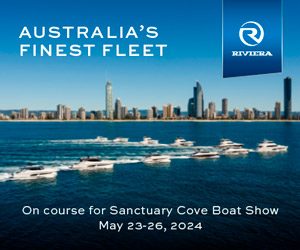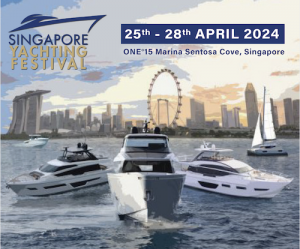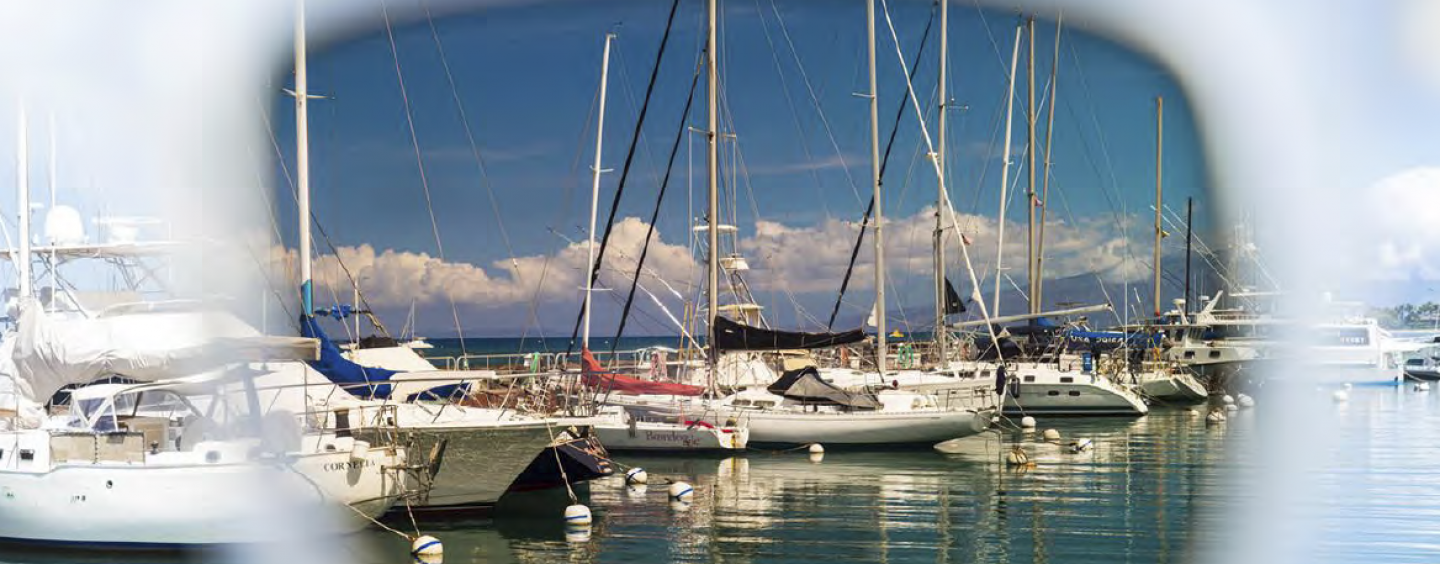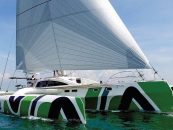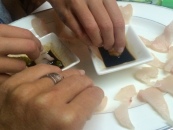When the skipper commands, “Cast off, crew, and shove on your sunnies!” you better follow orders, so says Gold Coast optometrist, Michael Hare, spokesperson for the Australian Optometric Panel.
The importance of proper eye protection cannot be underestimated. There is a good reason to wear sunglasses and it is not just to reduce the level of glare of which boaties would be all too aware. Michael explains, “Watersports and related recreational water activities subject the eyes to a significant level of not only direct sunlight, but high levels of ultraviolet light, and of course, immense amounts of reflected sunlight.”
All involved in water sports have probably endured some irritation to the eyes, especially after a long day on the water. It is not uncommon that a day of boating or even a few hours at sea will result in gritty, scratchy, irritable, often watery eyes. If you have ever been unlucky enough to spend a lengthy time at sea, where glare intensity is significant, there is the possibility of having a more severe condition of photo keratitis, something akin to snow blindness. In effect, this is where the eyes’ surface cells are burnt away. Recovery may take a day or so, and is hastened by eye moisturising drops and staying away from bright lights.
COMMON EYE PROBLEMS
For boaties, the two most common ocular side effects of sun exposure are growths on the eye surface, pinguecula, and the more serious pterygium. These are essentially a thickening and growth of the eye’s surface tissue that. If left unchecked, they can develop into raised inflamed and irritating lumpy areas. They are usually, but certainly not always, located on the nose side of the coloured part of the eye. It is essential that a pterygium be surgically removed if it is encroaching on the pupil edge. Delaying for too long can lead to an irreversible loss of vision quality.
It is certainly well known that exposure to high levels of glare and UV are significant contributing factors to the development of cataracts, a condition that all of us will develop if we live long enough, but one that is hastened by exposure to high levels of UV light.
The most feared of eye conditions, macular degeneration, is chiefly associated with age. However, studies have shown that exposure to UV light is a contributing factor to this potentially blinding eye condition.
We have not even touched on the skin cancer type growths that can occur on the eye. That is a story for another day.
POLARISED SUNNIES
The benefits of polarised sunglasses have been known since before the Second World War. Every boatie’s first line of defense is a good quality pair of these. Improved eye comfort, improved contrast, enhanced clarity of vision and the ability to see beneath the water’s surface are immediately noticeable when donning polarised sunnies. Moreover, the fact that all sunglasses act as a pretty good windbreak is of course an added bonus.
Most polarised sunglasses offer UV protection. As everyone needs to apply sunscreen before a day on the high seas, our eyes too need UV protection. What are we trying to protect the eyes from? Short answer: disease and damage!
It should be pointed out that while polarised sunglasses are undoubtedly the best for reflected light off water, they can also present some issues on LCD instrument screens where the polarising effect of the lenses can make the data on the screen seemingly vanish.
SIGHT IS MOST IMPORTANT
Michael has a humorous but apt comment. “If the best place for a chocolate is in your mouth, then the best place for sunglasses is on your face.”
It is really important, he goes on to say, that those who require prescription spectacles to drive a motor vehicle, should have the same prescription made up for any nautical activities. It is crucial to be able to spot any water obstructions, beacons and vessels. Prescription sunglass spectacles or contact lenses become increasingly important in the extremes of illumination, that is, in either intensely bright environments or in any circumstance where night nautical activities are undertaken.
Remember that it is not only important to protect the eyes, but it is arguably even more important that you see well. The importance of having regular comprehensive eye examinations goes without saying. There are still many Australians who fail to have regular eye check-ups. Michael explains, “There is no excuse for neglecting care of our most precious sense – our vision. The Medicare system in Australia provides for benefits for eye consultations from optometrists, and no referral from a doctor is required.”
If you’ve not had a recent eye examination then ask yourself, “Can I not afford to spend 30 minutes or so in the optometrist’s chair just to be sure that passengers, crew and others with whom you’re sharing the water can be seen clearly and with healthy eyes?”
By Andy Kancachian
VISION Michael Hare Eyecare Plus Optometrist
www.eyecareplus.com.au/southport-benowa


